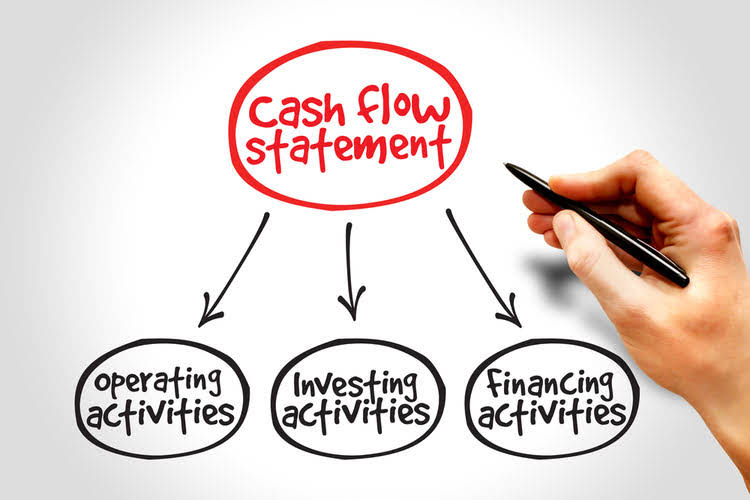
Net Sales here refer to the total amount of money your business receives from the sale of goods, while the cost of goods sold refers to the total expenses incurred to produce those goods. The revenue generated by retailers, manufacturers, wholesalers, and distributors from their primary activities is called sales revenue. On the other hand, the revenue generated by service providers or companies from their primary activities is called service revenues or fees earned. They are assets that the company does not plan to convert into cash within a year. The balance sheet reveals how well the company’s management team is putting the business resources to good use. Companies prepare their balance sheet at the end of an accounting period.
- The balance sheet produces reports on the company’s assets, liabilities, and equity.
- There’s a net operating loss in the example above, but there’s no place to explain that it was due to a pandemic that closed the store for months.
- Taxes have notable impact on both the balance sheet and the income statement.
- This guide will give you a comprehensive overview of both financial statements.
- Knowing when to use each is helpful in creating visibility into the financial health of your business.
Understanding Income Statements vs Balance Sheets

The balance sheet is like a photo of your bank account and student loan account on a specific date. If you get paid the next day, or your student loan gets forgiven, the photo doesn’t change. Creditors and investors often turn to these statements to assess your business’s growth, profitability, and value. There are five types of accounts in the general ledger found in your accounting software, and they’re found on either the balance sheet or the income statement. Your business’s financial position can’t be explained by just one financial statement.
Tax Implications and Financial Statements
Typically, the income statement is prepared and analyzed before the balance sheet. The income statement’s net income gives valuable insight into the retained earnings, which is then incorporated into the equity section of the balance sheet. Analyzing the income statement first allows for a better understanding of how the company’s operations have contributed to its financial position. When it comes to income statement vs. balance sheet, it’s very important to look at them together with other financial statements such as a cash flow statement. These differences don’t necessarily make one document better than the other.

Profits and Assets
All is contributing to the “bottom line,” which is either a profit or loss. For example, a company might cut its prices before the end of the quarter to create the illusion of higher sales figures. Products might listed as shipped or received at the end of one year or the beginning of the next, depending on which will create the better figures. 3 The Annual Percentage Yield (“APY”) for the Lili Savings Account is variable and may change at any time. Any portions of a balance over $100,000 will not earn interest or have a yield.
Balance Sheet vs Income Statement: Key Differences for Financial Analysis
These ratios will help you ascertain a clear picture of the company, and then you can decide whether you should invest in the company or not. If your expenses were higher than your revenue, your business https://www.bookstime.com/ ran at a loss for that period. This can be a bit of a bummer, but good intel to have so you can adjust accordingly. A balance sheet is used by lenders to determine a company’s creditworthiness.
Banking services are provided by Choice Financial Group, Member FDIC, or Sunrise Banks, N.A., Member FDIC. The Lili Visa® Debit Card is issued by Choice Financial Group, Member FDIC, or Sunrise Banks, N.A., Member FDIC, pursuant to a license from Visa U.S.A., Inc. The modest outlay could save you boatloads of cash at tax time, not to mention save you from pulling out all your hair trying to balance your books. Martin loves entrepreneurship what goes on balance sheet vs income statement and has helped dozens of entrepreneurs by validating the business idea, finding scalable customer acquisition channels, and building a data-driven organization. During his time working in investment banking, tech startups, and industry-leading companies he gained extensive knowledge in using different software tools to optimize business processes. COGS refers to the total costs incurred to manufacture goods, make sales, or render services.
- Management, investors, shareholders and others use it to assess the performance and future prospects of a business.
- In contrast, the income statement illustrates the company’s revenues, expenses, and net income over a period.
- The balance sheet helps a company determine if it has enough assets to meet its financial goals.
- Your income statement and balance sheet, along with a third doc, the cash flow statement (more on this later), paint the company’s entire financial picture.
- Her work has been featured in a number of top small business resource sites and publications.
Lili is not a tax preparer and does not provide tax, legal or accounting advice. You should consult your own tax, legal and accounting advisors regarding your specific situation. If we only concentrate on the balance sheet, we will not know about the bottom line. And if we only look at the income statement, we would miss out on the holistic picture of the company’s financial matters. The balance sheet is typically prepared monthly, quarterly, or annually.
J.C. Penney Company
Look at them as a package because each one helps fill in the other’s blind spots. Add in the cash flow statement and you’ll have a full picture of your business’s financial health. While there’s no overlap in balance sheet and income statement accounts, net income appears on the balance sheet as part of retained earnings, an equity account. This guide will give you a comprehensive overview of both financial statements. Other names for income statements are the profit and loss statement, statement of earnings, statement of operations, or statement of income.

